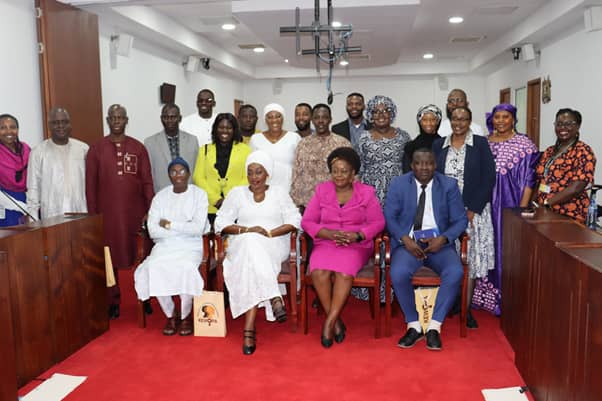
A delegation of Gambian lawmakers and civil society representatives has returned from a five-day study visit to Kenya, aimed at gaining insights into gender equality reforms and legislative practices.
The visit, organized by the International Institute for Democracy and Electoral Assistance (International IDEA) and funded by the European Union (EU), is part of efforts to strengthen democratic governance in The Gambia under the EU-CODE project.
Led by Hon. Fatoumata Njai, Chair of the National Assembly’s Gender Committee, the delegation included 10 committee members and three support staff, with additional support for four lawmakers from the United Nations Population Fund (UNFPA). The CSO Gender Platform delegation, headed by Ms. Mam Ndegen Jobe, consisted of seven representatives from organizations such as TANGO and NGBV.
The visit focused on studying Kenya’s legal frameworks for gender representation, examining the impact of women legislators on policymaking, and exploring best practices to address gender disparities. Delegates also engaged with Kenyan stakeholders, including legislators, advocacy groups, and community organizations, to discuss strategies for achieving gender equality.
EU representatives underscored the significance of the visit. “This study visit highlights the EU’s commitment to gender equality and inclusive governance in The Gambia. Learning from Kenya’s experiences equips delegates with tools to drive meaningful reforms and strengthen democracy at home,” said a statement from the EU.
Jainaba Faye, head of International IDEA in The Gambia, described the visit as transformative.
“The delegation gained valuable insights into Kenya’s affirmative action policies, which have significantly increased women’s representation in parliament. They also deepened their understanding of gender-based violence, reproductive rights, and community advocacy,” she said.
Faye expressed confidence that these lessons would empower lawmakers and civil society leaders to draft effective legislation promoting gender equality and protecting vulnerable groups in The Gambia.
Reporting by Adama Makasuba










Recent Comments